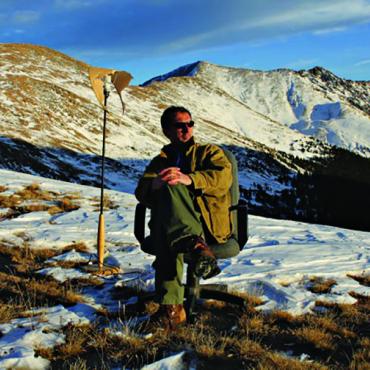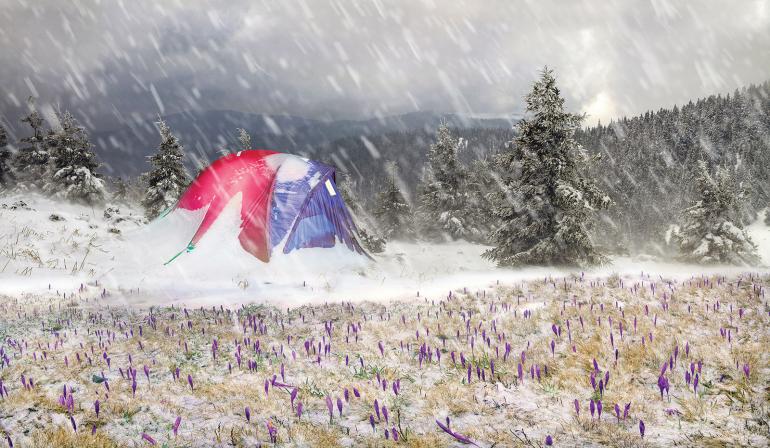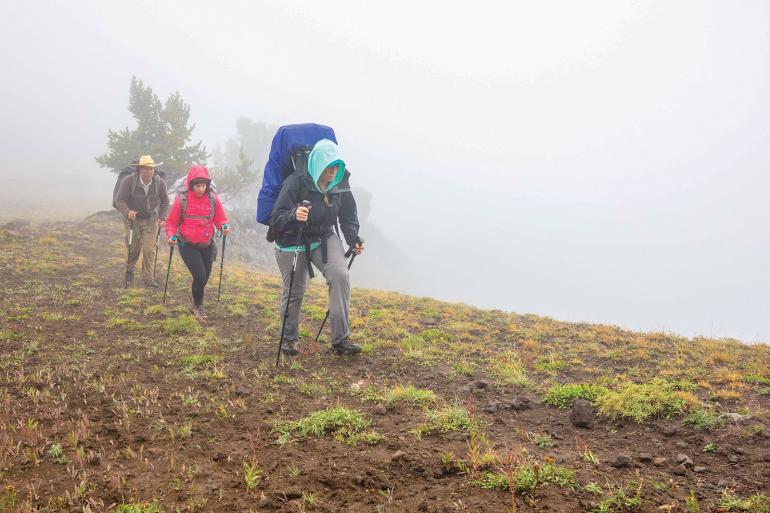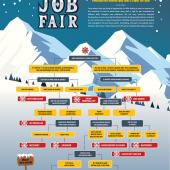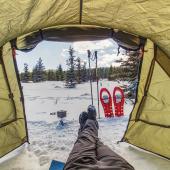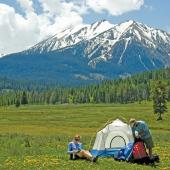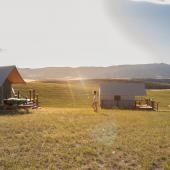Unhappy Campers
Exposing the truth of sleeping outside.
“Do you want to go backpacking?” is, for me, one of those questions that falls into the “no need to ask category,” on par with being asked, “Would you like another lobster tail?” (yes) or “Do you want to go see an Alan Parsons Project cover band?” (no).
My backpacking gung-ho engine revs especially high during spring when the mind, after an enduring Montana winter, craves immediate out-the-flap access to remoteness. Yet, as I was reminded last week, while attempting to maintain a campfire during one of those defeating spring snowfalls that floods the air with large, sloppy flakes resembling snow but feeling like rain, fun in the backcountry is a foreign language. It’s a language that even those who “speak it” have difficulty translating and understanding.
Though I spent the night chilled, wondering if perhaps spring was the season my three-season sleeping bag did not cover, enjoyment never flinched. Why? I wondered. Why do the firewalls of common sense fail to guard us against our outdoor obsessions that, if described on paper, would read as bizarre, misguided, even worrisome?
And maybe that’s just it—we never describe. If we did not have words for all the stuff we do—bouldering, paddleboarding, ice climbing—and were forced to instead describe the proposed activities, then I bet we would be more selective with our outdoor choices.
And by “describing,” I mean cutting through the fluff, boring into the marrow—the literal nub of each act. Take fly fishing, for example. Most people I know, if asked, “Want to go fly fishing?” would not ponder yes or no, but when and where. Their enthusiasm, I’m certain, would be less automatic if instead asked, “Want to spend the day in rubber slacks for the lone purpose of casting fake insects into streams with the intent of trying to catch trout, only to then release them and (as comedian Mitch Hedberg perfectly observed) make them late for something?”
Backpacking, especially, would suffer. Imagine how this phone invitation would be received:
“Want to spend your hard-earned weekend without furniture while devoting every waking second to avoiding mosquitos, ticks, gnats, black flies, bears, rattlesnakes, mountain lions, and, new to the list, river otters? But don’t worry, the daunt of realizing you’re the backcountry’s favorite chew-toy will be lessened by the ruthless exhaustion you’ll experience from hauling, like some hapless pack-mule, a 45-pound backpack up 11 miles of ankle-rolling terrain with a 3,000-foot elevation gain. When (or if) we reach our targeted location, we’ll promptly shed our packs and expose our sweat-drenched backs to the biting alpine air. We’ll then, within seconds, be blindsided by a shocking chill, feeling as if our backs participated in an arctic plunge without notifying the other parts of our bodies. But this is good. The threat of hypothermia is a strong motivator. It will force us to move fast in changing shirts, pitching the tent, and, for the sake of warming our bodies, wolfing down a pouch of freeze-dried spaghetti that contains a higher salt content than the Bering Sea. When it’s time for bed we’ll crawl into a Marmot tent, ignoring the dark irony that marmots are the main food source for a long list of backcountry predators including wolves, foxes, badgers, bears, coyotes, and eagles. Then, once inside our sleeping bags, finally warm, we’ll soon realize how Bono, from U2, was bull’s-eye correct when he penned the lyric, ‘Sleep comes like a drug in God’s country.’ But unfortunately, when backpacking, that drug could only be an amphetamine. Between laying on our air mattresses filled with our own foul breath, and gnawing on the raw truth that what we call a “tent,” a bear calls “food packaging,” insomnia is a guarantee. And even if we do find sleep, it will be brief due to one of the great mysteries of life—how the pulling of a tent zipper by a tent mate with a restless bladder at 4am can match the decibel level of a Black & Decker power saw.”
Only a fool would agree to this. Yet, on the other hand, only a fool would attempt to describe it. For as Edward Abbey once perfectly summed, “I have my reasons which reason knows nothing about.”

